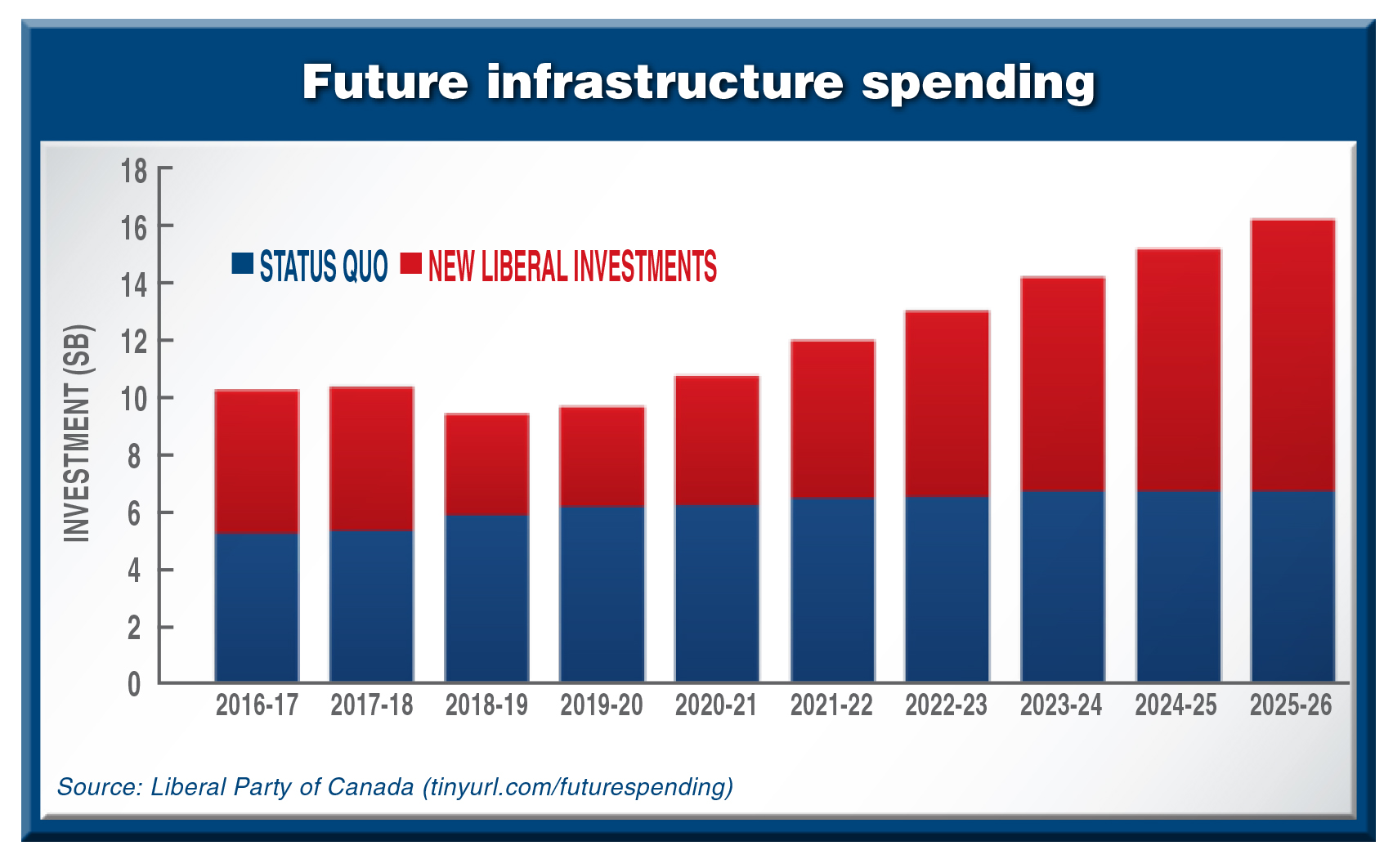By Mike Kastner, NTEA Managing
Director
This article was published in the December 2015 edition of NTEA
News.
Canadian history was made Oct. 19, 2015. Just a
few weeks before the election, polls showed the New Democratic Party (NDP)
falling to the low 20-percent range. The race had narrowed to the Conservatives
and Liberals. Almost all political analysts believed the election would result
in either a Conservative or Liberal minority government, but the results proved
otherwise.
Justin Trudeau, leader of the Liberal Party of Canada,
prevailed with a majority government, winning 184 of 338 seats in the House of
Commons. Never before has a political party come from being the third party to
forming government. Conservatives will be official opposition with 99 seats, and
NDP will come to Parliament Hill with only 44 seats. The Bloc Québécois was
successful in regaining a base of operations in Quebec, winning 10 seats, and
the Green Party received only one seat — one less than before the
election.
Highlights
Recent promises from the
Liberal campaign, which are relevant to NTEA members across the country and will
be on the Association’s radar, include:
- Invest $200 million annually
for three years to help research facilities, small business incubators and
exporters, and authorize another $100 million per year for an industrial
research assistance program.
- Increase federal infrastructure
support from the current $65 billion to almost $125 billion in the next decade.
Provide new, dedicated funding to provinces, territories and municipalities for
public transit, and social and green infrastructure.
- Establish the Canadian
Infrastructure Bank to provide low-cost financing for new infrastructure
projects.
- With a refocused Building
Canada Fund, promote a steadier flow of goods and business travelers by
modernizing border infrastructure and streamlining cargo inspections.
- Give $500 million to the
provinces for skilled trades training, and devote $200 million to federal
training programs.
- Employment Insurance (EI)
premiums drop to $1.65 per $100 earned from $1.88. That’s less than the $1.49
rate the Tories committed to in the 2015 budget, but Liberals say the extra
money would be reinvested, with $500 million going to the provinces for skills
training. Reduce the wait for a first EI payment from two weeks to one at a cost
of $710 million.
The heavy infrastructure focus is a positive development
for the work truck industry. The Liberal Party has not indicated specific plans
for key sectors of mining and energy — important end-use markets for NTEA
members. However, the group has highlighted the need to strengthen relations
between Canada and the United States.

The path
forward
Although Parliament has not confirmed when it
will resume, indications suggest a return in early December, along with a speech
from the Throne. Prime Minister Trudeau revealed his cabinet — the
first-ever with gender equality — on Nov. 4, 2015, including 31 ministers. In
the next few weeks, further appointments will be announced, such as Parliament
secretaries and committee members. Ministers noteworthy for NTEA
members follow.
- Chrystia Freeland, minister of
international trade, is a well-known Canadian writer and journalist, first
elected in 2013.
- Marc Garneau, minister of
transport, was first elected in 2008. His background includes history with the
Canadian Navy. He was the country’s first astronaut in outer space and has
worked for both NASA and the Canadian Space Agency.
- Catherine McKenna, minister of
environment and climate change, is a former legal adviser and negotiator for the
United Nations and co-founded Canadian Lawyers Abroad.
- Amarjeet Sohi, minister of
infrastructure and communities, previously served as Edmonton City Councillor,
working on several infrastructure and urban development projects.
As the ministers become familiar with their new
portfolios and committee members are established, the government will begin to
fulfill campaign promises. Initial areas of focus for the incoming government
will likely include:
- Reducing income taxes for those
making $45,000–$89,000 a year, with the creation of a new tax bracket for people
with annual earnings above $200,000.
- Working to add 25,000 Syrian
refugees by year-end to relieve the Middle East crisis, promising to spend $100
million in the current fiscal year for processing and sponsorship.
- Launching a public inquiry into
missing and murdered Aboriginal females.
- Stopping the planned purchase
of American F-35 fighter jets and beginning a transparent procurement process to
replace antiquated C-18s.
- Bringing together all Canadian
premiers to discuss and agree on a national climate change strategy prior to the
Paris Climate Change Conference.
- Beginning the marijuana
legalization process — a task which will eventually fall under provincial
jurisdiction.
- Changing Canada’s role in
combating the Islamic State of Iraq and the Levant by ending aerial bombings in
Syria and increasing contributions to training Iraqi forces.
Both Conservative and NDP caucuses and political leaders
will have significant internal reviews in the coming months. Stephen Harper has
already stepped down as leader of the Conservative party but intends to remain a
Member of Parliament. Rona Ambrose was named Conservative interim leader Nov. 5.
NDP leader Tom Mulcair, on the other hand, has chosen to stay with the party
“for the long haul.” Both groups have lost many of their strongest candidates,
including a number of Conservative ministers.
It’s important to note unlike divisions between
Democrats and Republicans in the United States, Canada’s Conservatives and
Liberals are not substantially different on major policy matters. While
U.S. investors will find business as usual in Canada, the new prime minister
could help reset the fractious relationship between the two countries. Prime
Minister Trudeau and President Obama have already had a productive conversation,
recommitting to strengthen joint efforts to promote trade and combat terrorism
and climate change.
NTEA’s government relations office in Ottawa will
monitor developments, including committee member selection, leadership changes
within opposition parties, and progress on campaign promises.
If you have any questions regarding the
information in this article, please contact Mike Kastner at 202-552-1600 or
mkastner@ntea.com.
